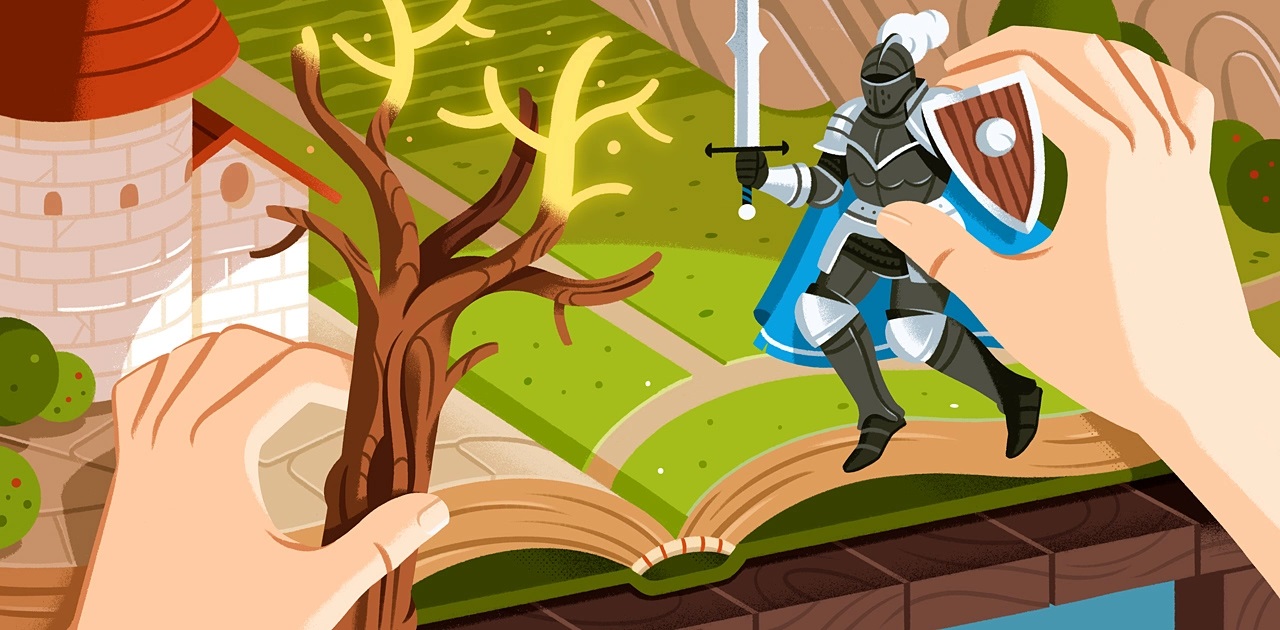
Worldbuilding is the art of crafting an imaginary universe with its own history, geography, and cultures. It's a crucial element in storytelling, especially in genres like fantasy and science fiction. But what makes worldbuilding so captivating? It's the depth and detail that transport readers or viewers to another realm, making the fictional world feel as real as our own. From the intricate maps of Middle-earth to the complex societal structures of Westeros, worldbuilding lays the foundation for immersive and compelling narratives. In this post, we'll dive into 20 fascinating facts about worldbuilding, shedding light on the creativity and meticulous planning that go into constructing these elaborate worlds. Whether you're a budding writer or a curious reader, these insights will enhance your appreciation for the unseen work behind your favorite stories.
What is Worldbuilding?
Worldbuilding is the process of constructing an imaginary world, sometimes associated with a whole fictional universe. This creative endeavor is fundamental in genres such as fantasy, science fiction, and video games, providing a rich backdrop that enhances the narrative and characters. Effective worldbuilding involves detailing geography, history, culture, and social norms of the world, making it believable and immersive for the audience.
- J.R.R. Tolkien is often hailed as the father of modern worldbuilding, with his creation of Middle-earth setting a high standard for depth and detail in fictional universes.
The Elements of Worldbuilding
At its core, worldbuilding encompasses several key elements that contribute to the believability and complexity of the fictional world.
- Geography plays a crucial role, including the layout of lands, climates, and ecosystems, which influence the cultures and lifestyles of inhabitants.
- History enriches a world, providing a backstory that can impact current events and characters' motivations.
- Culture, including language, religion, and customs, adds depth and realism, showing how inhabitants interact with their world and each other.
- Social norms and political structures define the interactions between different groups and individuals, shaping the narrative's conflict and alliances.
Techniques for Effective Worldbuilding
Worldbuilders use various techniques to create immersive and coherent worlds.
- Maps are a common tool, helping creators visualize the geography of their world and its various locations.
- Character backstories can serve to introduce elements of the world naturally, through the eyes of the inhabitants.
- Consistency is key; all elements of the world should adhere to the same set of rules established by the creator to maintain believability.
Worldbuilding in Literature
Literature offers a vast canvas for worldbuilding, allowing authors to explore their creations in great depth.
- "The Lord of the Rings" by J.R.R. Tolkien is renowned for its elaborate worldbuilding, including detailed maps, languages, and histories.
- "Harry Potter" by J.K. Rowling, while set in a world parallel to our own, introduces magical elements and locations that captivate readers with their richness and detail.
Worldbuilding in Film and Television
Visual media bring worlds to life, showing audiences rather than telling them about the intricacies of the setting.
- "Avatar" directed by James Cameron, showcases the alien world of Pandora, with its unique flora, fauna, and indigenous culture.
- "Game of Thrones", based on the books by George R.R. Martin, visually presents the complex political and cultural landscape of Westeros and beyond.
Worldbuilding in Video Games
Video games offer an interactive form of worldbuilding, where players can explore and engage with the world directly.
- "The Elder Scrolls" series features expansive open worlds, rich in lore and history, inviting players to uncover its secrets.
- "Minecraft" allows players to construct their own worlds, using the game's building blocks to create complex structures and landscapes.
The Impact of Worldbuilding
Effective worldbuilding can significantly enhance the audience's experience, making the fictional world feel lived-in and real.
- It encourages immersion, allowing readers, viewers, or players to lose themselves in the world.
- Worldbuilding can also foster a deeper connection to the story, as audiences become invested in not just the characters but the world itself.
Challenges of Worldbuilding
Creating a believable and detailed world is no small feat and comes with its own set of challenges.
- Balancing detail with narrative pace is crucial; too much exposition can bog down the story, while too little can leave audiences confused.
- Avoiding clichés and stereotypes, especially in cultures and societies, is essential for creating a unique and engaging world.
The Future of Worldbuilding
With advancements in technology and storytelling techniques, the scope and ambition of worldbuilding continue to grow.
- Virtual reality offers new possibilities for immersive worldbuilding, allowing audiences to step directly into the world.
- Collaborative worldbuilding, where creators work together or with their audience to expand the world, is becoming more common, leveraging the collective creativity of a community.
Crafting Worlds Beyond Imagination
Worldbuilding isn't just for authors or game designers; it's a fascinating process that invites us all to stretch our imaginations and explore possibilities beyond the confines of reality. From creating complex societies to inventing languages, and shaping landscapes, every detail contributes to the richness of these fictional universes. Whether you're diving into the lore of your favorite fantasy series, sketching out your own fictional world, or simply appreciating the depth of creativity involved, the art of worldbuilding offers endless opportunities for discovery and wonder. Remember, every fact about worldbuilding is a stepping stone into realms of untold stories and uncharted territories. So, keep your curiosity alive, and let your imagination soar as you craft or explore worlds beyond imagination.
Was this page helpful?
Our commitment to delivering trustworthy and engaging content is at the heart of what we do. Each fact on our site is contributed by real users like you, bringing a wealth of diverse insights and information. To ensure the highest standards of accuracy and reliability, our dedicated editors meticulously review each submission. This process guarantees that the facts we share are not only fascinating but also credible. Trust in our commitment to quality and authenticity as you explore and learn with us.


